In the bustling world of property management, finding the right tenants can make or break your rental business.
Whether you're a property owner looking to lease your investment property or manage multiple rental units, conducting thorough tenant screening is vital to ensuring steady income, protecting your assets, and cultivating a positive landlord-tenant relationship.
This article will walk you through the essentials of tenant screening, helping you make informed decisions that benefit both you and your prospective tenants.
The Importance of Tenant Screening for Property Owners
Tenant screening is an integral part of rental property management. It involves evaluating potential tenants to ensure they are reliable, financially stable, and likely to pay rent on time.
By conducting effective tenant screening, you minimize risks associated with problematic tenants, such as property damage, unpaid rent, and legal disputes.
It also helps you maintain a profitable rental business by selecting tenants who contribute positively to the community within your property.
Reduces the Risk of Problematic Tenants
A comprehensive screening process can help identify potential red flags like past evictions, late payments, or criminal records. By screening tenants carefully, you can ensure that you're renting to individuals who are responsible and financially capable.
This reduces the likelihood of encountering issues such as property damage or unpaid rent, which can be costly and time-consuming to resolve.
Helps to Avoid Financial Losses
Renting to unreliable tenants can lead to significant financial losses. By conducting thorough tenant screening, you protect your rental property from tenants who may default on rent or cause damage.
The importance of tenant screening lies in its ability to secure reliable tenants, ensure consistent rent payments and minimize property-related expenses.
The Tenant Screening Process
A thorough tenant screening process involves evaluating rental applications, conducting thorough background checks, and verifying financial, criminal, and rental history details. Adhering to fair housing laws is essential to ensure a non-discriminatory approach when selecting tenants.
A well-defined screening process helps property owners make informed decisions, reducing the risk of legal or financial complications.
Conducting Background Checks and Rental History Checks
Background checks are a critical component of the tenant screening process. They involve analyzing an applicant's credit history, criminal records, and rental history to assess reliability.
By conducting these checks, landlords can find tenants with a track record of responsibility in previous tenancies and personal conduct.
Evaluating Eviction History and Its Implications
Understanding a tenant's eviction history provides valuable insights into their rental behavior and financial responsibility. An eviction history check can reveal patterns of past issues, helping landlords evaluate potential risks.
This assessment is crucial in determining whether a prospective tenant is a suitable fit for your rental property.
Verifying Income and Employment
Verifying a tenant's income and employment is a critical step in assessing their ability to meet rental obligations. By confirming stable income sources, landlords can gauge financial reliability and ensure timely rent payments. Employment verification provides insights into a tenant's financial stability, contributing to a successful rental experience.
Red Flags in Income and Employment Verification
Be vigilant for inconsistencies in income and employment documents. Look for gaps in employment history or frequent job changes that could indicate instability.
If reported income seems unusually high or low for their profession, investigate further.
How to Legally Run a Credit Report
To legally run a credit report, you must obtain written authorization from the applicant and comply with the Fair Credit Reporting Act (FCRA). This involves informing tenants of their rights and ensuring transparency throughout the process.
A credit report offers valuable insights into a tenant's financial responsibility, aiding in informed decision-making.
Best Practices for a Thorough Screening Process
Implementing best practices in tenant screening is crucial for successful rental property management. Conduct comprehensive background checks, verify employment, and evaluate rental history and credit scores.
By following a systematic approach, you ensure consistency and fairness in the screening process, reducing risks and enhancing tenant selection.
Setting Clear and Fair Occupancy Standards
Establishing clear and fair occupancy standards is vital in defining guidelines for your rental property. By outlining applicable rules and requirements, you help ensure prospective tenants understand expectations from the outset.
Fair and objective rental criteria are essential in the tenant application process, promoting transparency and legality.
Establishing Consistent Screening Criteria
Consistency in screening criteria is key to evaluating potential tenants objectively. Define parameters that align with fair housing laws, avoiding discrimination based on race, religion, or familial status. Developing a comprehensive tenant screening checklist streamlines the process, ensuring all applicants are assessed fairly and impartially.
Avoiding Discrimination in the Screening Process
Adhere to legal and ethical considerations during tenant screening. Fair housing laws prohibit discrimination based on sex, race, or religion. Property owners must ensure equal treatment of all applicants.
By maintaining compliance with these laws, you foster a positive reputation and uphold ethical standards in rental management.
Making the Decision: Accept or Reject
When deciding to accept or reject a potential tenant, consider factors like rental history, employment stability, and credit score. Adhering to fair housing laws ensures informed decisions.
If rejecting, provide polite explanations without specific reasons. When accepting, finalize lease agreements and establish clear expectations for tenancy.
How to Politely Reject an Applicant
Maintain professionalism when rejecting rental applicants. Express gratitude for their interest and inform them of your decision. Avoid providing specific reasons for rejection to prevent legal issues.
Encourage continued search and wish them success in finding suitable accommodation. Respectful communication reflects well on your property management.
Best Practices for Accepting a Tenant
Accepting a tenant requires careful consideration and adherence to best practices. Communicate acceptance promptly, finalize lease agreements, and ensure security deposits are paid.
Conduct move-in inspections to document property conditions. These steps establish a solid foundation for a positive landlord-tenant relationship and successful tenancy.
Common Mistakes to Avoid in Tenant Screening
As a landlord, you should be cautious of the following when screening for vying tenants.
Inconsistent or Unfair Screening Criteria
Developing clear and consistent criteria is essential for fair evaluation. Ensure compliance with fair housing laws, avoiding discrimination. Consistent screening criteria promote transparency and legality in tenant selection, fostering trust and credibility with applicants.
Failure to Verify Information
Verifying income and employment is crucial in assessing financial stability. Confirm stable income sources to ensure rent payments are met. Thorough verification reduces risks associated with unreliable tenants, safeguarding your rental property and investment.
Benefits of Proper Tenant Screening for Rental Property
Proper tenant screening helps landlords find reliable tenants who pay rent on time and comply with lease terms. Effective screening practices minimize risks, enhance tenant retention, and foster positive landlord-tenant relationships. By selecting responsible tenants, you ensure a profitable and successful rental business.
Improved Tenant Retention and Reduced Turnover
Selecting reliable tenants through thorough screening can reduce turnover rates and improve tenant retention. Responsible tenants contribute to a harmonious community and minimize property damage, enhancing the overall rental experience for both landlords and tenants.
Choose Your Tenants Correctly
Tenant screening is a crucial process for landlords seeking to secure responsible and reliable tenants for their rental properties.
A successful tenant screening process can minimize legal and financial risks, protect their investments, and maintain profitable rental businesses. Effective tenant screening helps select tenants who pay rent on time, respect lease agreements, and maintain the property.
PMI Mile High can make your tenant screening process more efficient and effective. Call or visit our website today.


